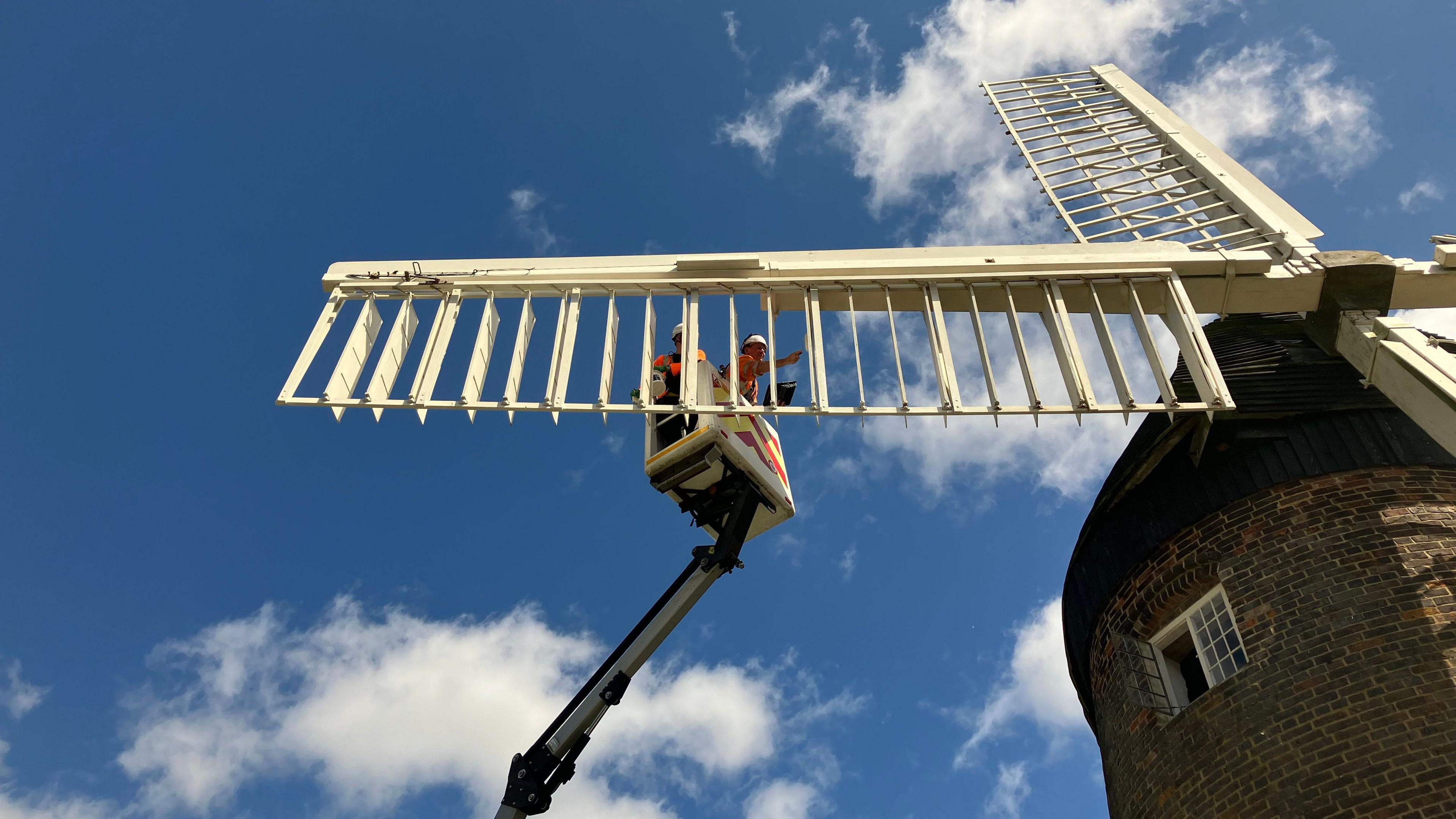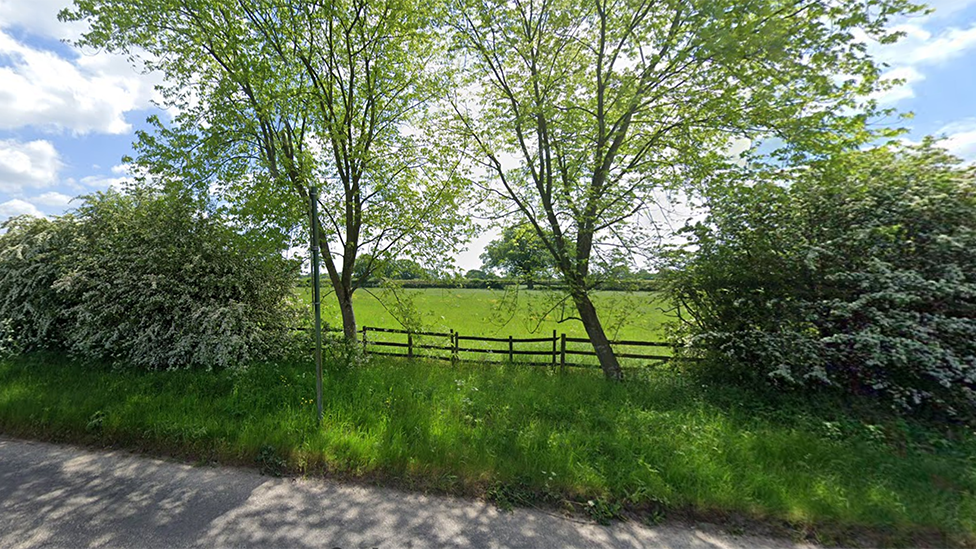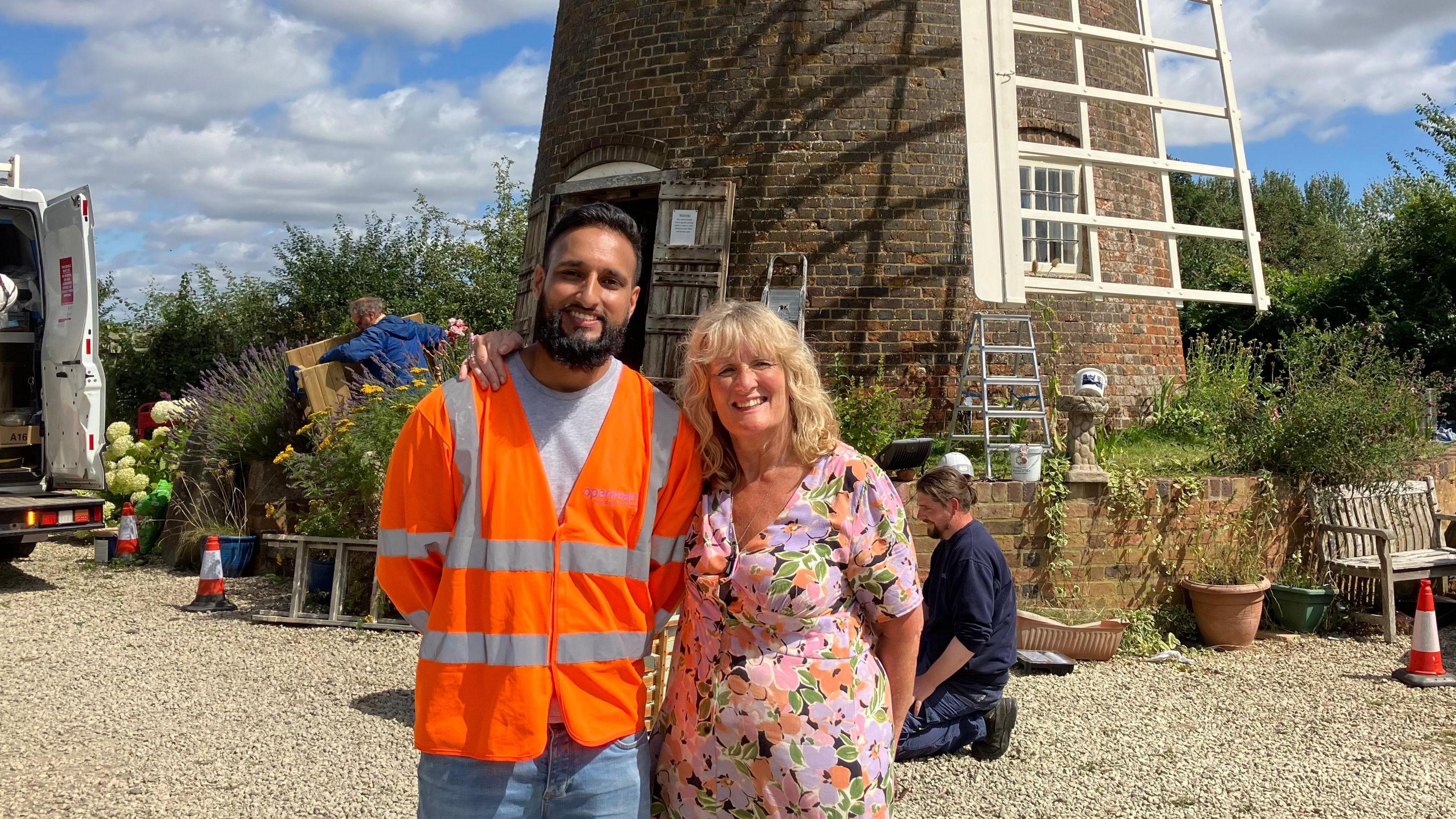Homes could be approved despite windmill concerns

Last year volunteers helped maintain the sails of the listed windmill
- Published
Hundreds of homes could be given the go-ahead next week, despite campaigners' concerns they would harm views of a 200-year-old windmill.
Applicant Barwood Development Securities Ltd wants to build 250 homes on land at Pheasant Oak Farm, off Waste Lane, in Balsall Common.
The scheme, which also includes a children's play area, community orchard and nature areas, has been recommended for approval by council officers.
Solihull Council's planning committee will meet next week to make a decision on the application, which was originally lodged with the authority in 2023.
Half of the properties earmarked for the site are designated as affordable homes.
In its design statement, the developer said the scheme would "transform a site on the council's current brownfield register and create a high-quality development with a strong identity and distinct sense of place".

The development is planned for land just off Waste lane in Balsall Common
The Local Democracy Reporting Service said two key concerns were raised during public consultations - that the site is located in the green belt with no very special circumstances existing to justify it and the effect on the Grade II listed Berkswell Windmill.
In its submission, Historic England described the windmill as "one of the best surviving tower mills in the West Midlands" and a "picturesque feature of the landscape".
It concluded the development would not cause substantial harm to the windmill's "significance and setting", but urged the council to fully consider the potential impact of the housing before deciding the application.
In a statement, owner of the windmill Jeanette McGarry said: "We are not asking for much, just a tweak to the planning application conditions - a green open space so that the public can enjoy year-round iconic views of this incredible working windmill."
In a report for the committee, council officers said the site was considered grey belt - lower quality green belt land - while the environmental, social and economic benefits of the proposed development were "very substantial".
The council officers added that policies protecting heritage assets did "not provide a clear reason for refusing the proposed development".
Get in touch
Tell us which stories we should cover in Birmingham and the Black Country
Follow BBC Birmingham on BBC Sounds, Facebook, external, X, external and Instagram, external.
Related topics
- Published10 August 2024

- Published27 May 2013